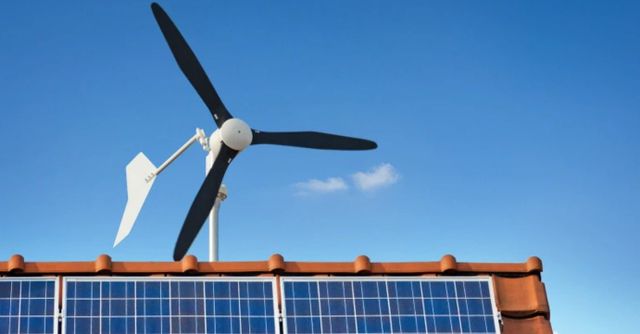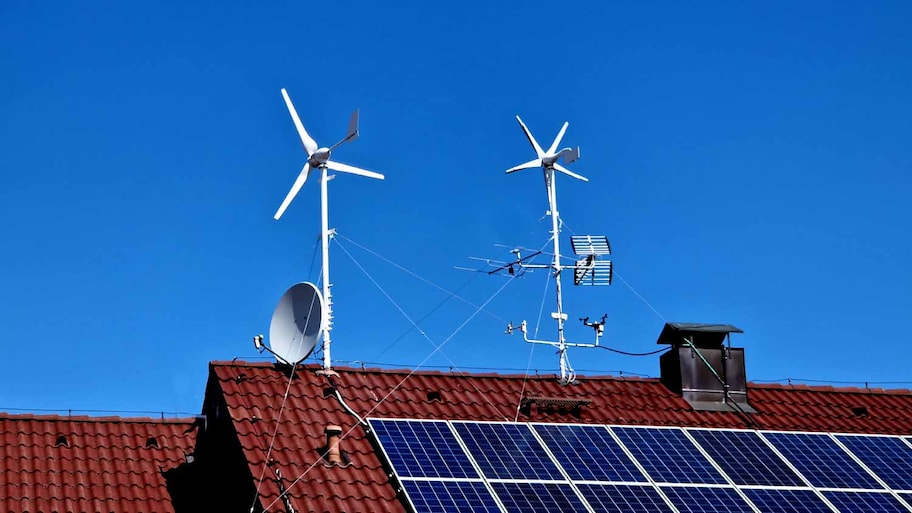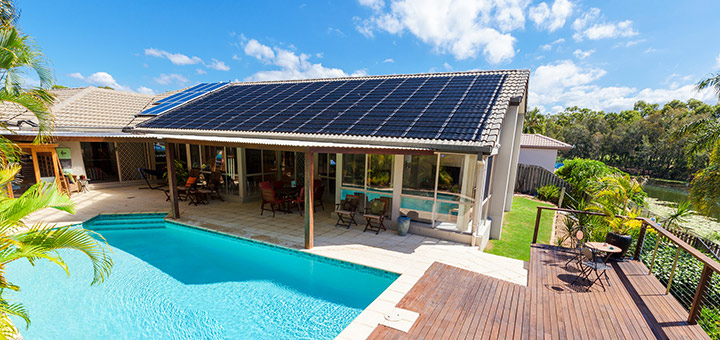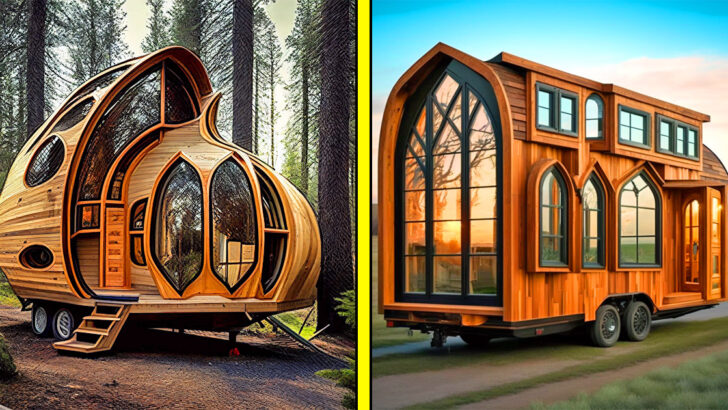
In an era of increasing environmental awareness and a desire for self-reliance, exploring renewable energy projects for your homestead has become more important than ever.
This article delves into the top 10 innovative and practical solutions that can empower your homestead with clean, sustainable energy.
From solar energy systems and wind turbines to hydro power systems and geothermal heating, each project is described in detail, providing the technical information needed to make informed decisions.
Join the movement towards energy independence and discover the possibilities for a greener future.
Solar Energy Systems
Solar energy systems are a vital component for sustainable and independent power generation on homesteads. With the increasing focus on renewable energy sources, solar panels have emerged as a cost-effective solution for homeowners seeking to reduce their reliance on traditional energy grids.
The efficiency of solar panels has significantly improved over the years, ensuring that more energy can be harvested from the sun's rays. This increased efficiency translates into higher energy production and greater savings on electricity bills.
Additionally, the cost of solar energy systems has decreased, making them more accessible to a wider range of homeowners. Investing in solar panels not only contributes to a greener environment but also provides the freedom to generate clean, renewable power on your own terms.

Wind Turbines
When considering wind turbines for your homestead, it is important to evaluate their efficiency, cost, and environmental impact.
Wind turbines vary in terms of their efficiency, with newer models being more efficient at converting wind energy into electricity.
Additionally, it is crucial to consider the initial investment and maintenance costs associated with wind turbines, as they can vary depending on the size and capacity of the system.
Lastly, it is essential to assess the environmental impact of wind turbines, including factors such as noise pollution and potential bird and bat collisions.
Efficiency of Wind Turbines
Wind turbines are key components in the generation of renewable energy due to their high efficiency and ability to harness the power of wind. The efficiency of wind turbines has significantly improved over time due to technological advancements and rigorous efficiency analysis. These advancements have resulted in higher conversion rates, allowing wind turbines to convert a larger proportion of the wind's kinetic energy into usable electricity.
Today's wind turbines can achieve efficiency levels of up to 60% or higher, depending on the design and technology used. Furthermore, continuous research and development in wind turbine technology are leading to further improvements in efficiency. These advancements not only enhance the overall performance of wind turbines but also contribute to the growth and sustainability of renewable energy sources, empowering homesteads with a reliable and clean energy solution.
Cost of Wind Turbines
The financial aspect of incorporating wind turbines into a renewable energy project is an essential consideration for homestead owners looking to harness the power of wind. The cost of wind turbines can vary depending on various factors such as the size, capacity, and location of the turbine. On average, a small wind turbine can cost anywhere from $10,000 to $70,000, while larger turbines can range from $70,000 to several million dollars.

It is important to note that while the initial investment may seem high, wind turbines have a long lifespan and can provide significant savings on electricity bills over time. Additionally, there are various incentives and tax credits available that can help offset the cost of installing wind turbines.
Homestead owners should carefully consider their energy needs, available space, and budget before investing in a wind turbine.
Environmental Impact of Wind Turbines
One important consideration when evaluating the cost of wind turbines is their environmental impact. Wind turbines offer several environmental benefits that make them a popular choice for renewable energy. However, there are also some potential drawbacks to be aware of, such as noise pollution.
Here are some key points to consider regarding the environmental impact of wind turbines:
- Renewable Energy: Wind turbines harness the power of the wind to generate electricity, making them a clean and renewable energy source.
- Reduced Greenhouse Gas Emissions: By generating electricity without burning fossil fuels, wind turbines help to reduce greenhouse gas emissions and mitigate climate change.
- Land Use: Wind turbines require open spaces, which can impact wildlife habitats and agricultural land use.
- Noise Pollution: The spinning blades of wind turbines can create noise, which can be a concern for nearby residents.
Hydro Power Systems
Hydro power systems offer cost-effective options for generating renewable energy on a homestead. With the right setup, hydro power can provide a consistent and reliable source of electricity, reducing reliance on traditional power grids.
However, it's important to consider the environmental impact of hydro power, as it can affect aquatic ecosystems and fish populations.
Additionally, hydro power systems require regular maintenance to ensure optimal performance and prevent potential issues.

Cost-Effective Hydro Options
Cost-Effective Hydro Options can provide a sustainable and affordable solution for powering your homestead. Here are four cost-effective hydro systems that can be implemented on a small scale:
- Micro Hydro Turbines: These turbines are designed for low head and low flow water sources, making them perfect for small-scale hydro power generation. They are cost-effective and can generate electricity even with a small water source.
- Pelton Wheel Turbines: Pelton wheel turbines are highly efficient and can generate power from high head water sources. They are suitable for hilly or mountainous areas where there is a significant drop in elevation.
- Archimedes Screw Turbines: These turbines are ideal for low-head water sources and can generate power by utilizing the kinetic energy of flowing water. They are cost-effective and require minimal maintenance.
- Waterwheels: Waterwheels have been used for centuries to generate power from flowing water. They are simple, reliable, and cost-effective, making them a popular choice for small-scale hydro power systems.
Implementing these cost-effective hydro options can provide your homestead with a reliable and sustainable source of electricity, reducing your dependence on traditional power sources.
Environmental Impact of Hydro
The environmental impact of hydro power systems is a crucial aspect to consider when implementing renewable energy projects on your homestead.
Hydro power, also known as hydroelectric power, is generated by harnessing the energy of flowing or falling water. One of the significant environmental benefits of hydro is its low greenhouse gas emissions compared to fossil fuels. It is a clean and renewable source of energy that does not contribute to air pollution or global warming.
However, the construction and operation of hydro power systems can have an impact on local ecosystems. The alteration of natural river flows can affect aquatic habitats, fish migration, and sediment distribution. Dams may also lead to the displacement of wildlife and the loss of natural habitats.
Careful planning and management are necessary to minimize these negative effects and ensure the sustainability of hydro power systems.
Maintenance Requirements for Hydro?
Ensuring the proper maintenance of hydro power systems is essential for their long-term effectiveness and reliability. Here are some key maintenance requirements to consider for hydro power systems:

- Regular inspections: Conduct routine inspections of the turbines, generators, and other components to identify any signs of wear and tear or potential issues.
- Cleaning and debris removal: Regularly clean the intake screens and remove any debris that may accumulate in the system. This helps to prevent clogs and ensures the smooth flow of water.
- Lubrication: Proper lubrication of moving parts is crucial to reduce friction and ensure optimal performance.
- Monitoring and testing: Regularly monitor the system's performance and conduct tests to check for any abnormalities or inefficiencies in the power output.
Geothermal Heating
To optimize energy efficiency and reduce reliance on traditional heating systems, geothermal heating offers a sustainable and reliable alternative for homesteads. Geothermal energy applications harness the heat stored beneath the Earth's surface to provide heating and cooling for homes.
This technology utilizes the constant temperature of the ground, which remains relatively stable throughout the year, to transfer heat into the home during the winter and extract heat during the summer.
The benefits of geothermal heating are numerous. Firstly, it is a renewable energy source, making it environmentally friendly and reducing carbon emissions. Secondly, it provides a consistent and reliable source of heating, eliminating the need for fossil fuels and reducing energy costs. Additionally, geothermal heating systems require minimal maintenance, making them a hassle-free option for homestead owners.
Biomass Heating Systems
Biomass heating systems offer efficient options for sustainable fuel.
Biomass, such as wood pellets, agricultural residues, or dedicated energy crops, can be used as a renewable source of heat.
These systems convert biomass into heat energy through combustion or gasification processes, providing a reliable and environmentally friendly alternative to fossil fuels.
Efficient Biomass Heating Options
One efficient option for heating your homestead is by utilizing biomass heating systems. These systems use organic materials, such as wood pellets, agricultural waste, or dedicated energy crops, to produce heat.

Here are four benefits of biomass heating:
- Renewable Energy: Biomass is a sustainable and renewable energy source that can be replenished through efficient biomass production methods. By using biomass heating systems, you can reduce your reliance on non-renewable fossil fuels and contribute to a greener future.
- Cost Savings: Biomass heating systems can help you save on heating costs. Biomass fuels are often cheaper than traditional fossil fuels, and by using biomass heating systems, you can potentially reduce your energy bills.
- Energy Independence: By utilizing biomass heating, you can become more self-sufficient and less reliant on external energy sources. This can provide you with a sense of freedom and security, knowing that you have control over your heating needs.
- Carbon Neutral: Biomass heating systems are considered carbon neutral because the carbon dioxide emitted during the combustion process is offset by the carbon absorbed by the plants during their growth. This makes biomass heating a more environmentally friendly option compared to fossil fuels.
Biomass as Sustainable Fuel
Utilizing biomass as a sustainable fuel in heating systems offers numerous advantages, making it an appealing choice for homeowners seeking renewable energy solutions.
Biomass refers to organic matter such as wood pellets, crop residues, and agricultural waste, which can be used as a fuel source for generating heat. This type of energy production is considered sustainable because biomass is a renewable resource that can be replenished through natural processes.
Furthermore, biomass heating systems have the potential to reduce greenhouse gas emissions when compared to traditional fossil fuel-based heating systems. By harnessing the power of biomass, homeowners can not only lower their carbon footprint but also benefit from cost savings and energy independence.
These sustainable fuel sources provide an environmentally friendly alternative for heating homes, making them a viable option for those looking to embrace renewable energy solutions.
Solar Water Heaters
Solar water heaters are a cost-effective and environmentally-friendly solution to provide hot water for your homestead. Here are four key benefits of solar water heating:
- Energy savings: Solar water heaters harness the power of the sun to heat your water, reducing the need for traditional heating methods and lowering your energy bills.
- Reduced carbon footprint: By using renewable energy, solar water heaters help reduce greenhouse gas emissions and promote a cleaner environment.
- Long-term investment: While the initial installation cost may be higher than conventional water heaters, solar water heaters have a longer lifespan and require minimal maintenance, resulting in long-term savings.
- Energy independence: By relying on the sun's energy, solar water heaters provide a reliable source of hot water, even during power outages or when living off-grid.
To enjoy these benefits, consider investing in solar water heater installation for your homestead. It's a practical and sustainable choice that aligns with your desire for freedom and self-sufficiency.

Solar Cookers
When it comes to sustainable and efficient cooking options for your homestead, solar cookers offer a practical and eco-friendly solution.
Solar cookers, also known as solar ovens, utilize the power of the sun to heat and cook food. These renewable cooking devices harness the energy from sunlight and convert it into heat, which is then used for cooking.
Solar cookers come in various types, including box cookers, parabolic cookers, and panel cookers, each with its own unique design and functionality.
The box cooker, for example, consists of an insulated box with a glass lid that traps the sun's heat inside, while the parabolic cooker uses curved reflective surfaces to concentrate sunlight onto a cooking vessel.
With solar cookers, you can enjoy delicious meals while reducing your carbon footprint and reliance on traditional cooking fuels.
Solar Lighting
One effective and efficient way to enhance your homestead's sustainability and reduce your reliance on traditional lighting sources is through the use of solar lighting. Solar lighting is a renewable energy solution that harnesses the power of the sun to provide illumination for your outdoor spaces.
Here are four key features of solar lighting that can empower your homestead:

- Energy-efficient: Solar garden lights are designed to maximize energy efficiency, using minimal power during the day and providing bright illumination at night.
- Off-grid lighting: By using solar lighting, you can free yourself from the constraints of the electrical grid, allowing you to light up pathways, gardens, and other areas without the need for traditional power sources.
- Easy installation: Solar lights are typically easy to install, requiring minimal wiring or electrical expertise. This makes them a convenient and hassle-free option for homesteaders.
- Low maintenance: Solar lighting systems generally require little maintenance, as they are designed to be durable and weather-resistant. This means less time and effort spent on upkeep, allowing you to focus on other aspects of your homestead.
With solar lighting, you can create a sustainable and self-sufficient lighting solution for your homestead, providing both functionality and freedom from traditional power sources.
Biodiesel Production
Another renewable energy project that can empower your homestead is biodiesel production.
Biodiesel is a renewable alternative fuel source that can be used to power various vehicles and machinery on your property.
Biodiesel is produced from organic materials such as vegetable oils, animal fats, or recycled cooking oil.
The production process involves a chemical reaction called transesterification, where the organic materials are converted into biodiesel through the use of a catalyst.
This biodiesel can then be used in diesel engines without any modifications.
Biodiesel production offers several advantages, including reduced dependence on fossil fuels, lower emissions, and the ability to utilize waste products.

Energy Saving Appliances
Energy-saving appliances are a vital addition to any homestead, as they seamlessly continue the path towards sustainability and reduce energy consumption, building upon the previous discussion of biodiesel production.
Investing in energy-efficient lighting is a smart choice for homeowners looking to cut down on electricity usage. LED bulbs, for example, use significantly less energy than traditional incandescent bulbs and have a longer lifespan.
Another way to save energy is by incorporating smart home technology, such as programmable thermostats and smart power strips. These devices allow homeowners to control and optimize their energy usage, reducing waste and lowering utility bills.
Additionally, energy-efficient appliances like refrigerators, washing machines, and dishwashers consume less electricity and water, further contributing to a sustainable and cost-effective homestead.
Frequently Asked Questions
What Is the Average Cost of Installing a Solar Energy System for a Typical Home?
The average cost of installing a solar energy system for a typical home can vary depending on factors such as the size of the system, location, and specific requirements. It typically ranges from $15,000 to $25,000, including installation and equipment costs.
How Much Power Can a Wind Turbine Generate on a Daily Basis?
A wind turbine's power generation can vary depending on factors such as wind speed and turbine efficiency. On average, a well-designed turbine can generate anywhere from a few kilowatts to several megawatts of power on a daily basis.
Are Hydro Power Systems Suitable for Homes Located Far From Water Sources?
Hydro power systems, such as off grid hydro power and small scale hydro power, can be suitable for homes located far from water sources. They offer a reliable and sustainable energy solution for remote locations or homes without access to traditional power sources.

Can Geothermal Heating Systems Be Installed in Existing Homes or Is It Only Feasible for New Constructions?
Geothermal heating systems can be retrofitted in existing homes, not limited to new constructions. The advantages of geothermal retrofit include reduced energy costs, increased comfort, and decreased reliance on fossil fuels.
What Types of Biomass Are Commonly Used in Biomass Heating Systems?
Biomass heating systems commonly use wood pellets, wood chips, and agricultural waste as fuel sources. These biomass types offer benefits such as cost-effectiveness and reduced reliance on fossil fuels, but also have drawbacks including maintenance requirements and potential environmental impacts. Government incentives are available to encourage the adoption of biomass heating systems.